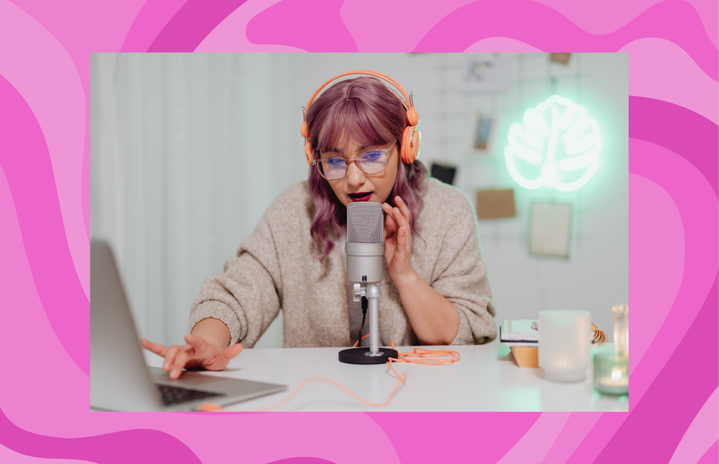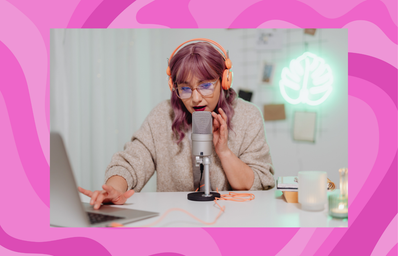“Is she…talking to herself?”
I had been pacing around my middle school’s choir room, musing aloud about something I’d just read (thinking I was alone) when a classmate who had recently entered the room spoke those five words. At first, I was embarrassed—my cheeks grew red and I bit my lip. Then I grew defensive; plenty of people talk to themselves, I rationalized. Now, years later, I am completely comfortable with having conversations with just me, myself, and I. Because, with its myriad benefits, I would argue that talking to yourself is actually not a sign of insanity, but rather humanity and health. Here’s why I think so:
MEMORY AND ORGANIZATION
While someone often made fun of me for my “goldfish memory” (a playful insult based on the myth that the aquatic creatures can only remember up to a few seconds worth of content), talking to myself is a key way that I am able to recollect information. Speaking forces me to think clearly and articulate myself in a way that silently attempting to retrieve information doesn’t. So, when I verbally recount my to-do list for the next day in the shower or chant whatever mnemonic device I created to remember my grocery list, I am able to act more swiftly, pointedly, and intelligently in the future. This principle has been a great help to me when I study definitions (I read my notes aloud to myself and it works wonders!). Similarly, talking to myself helps me to practice what I’m going to say, for example, if I’m going to give a speech or have a challenging conversation with a loved one. It gives me the space and focus to organize my thoughts and, by extension, my words, and it is a useful tool in my arsenal.
SELF-TALK
When I’m feeling lousy, down, or depressed, I am lucky enough to have people I can talk to and seek advice from. However, sometimes no matter how much my family members counsel me and no matter how many times my friends give me pep talks, I remain stressed or sad. This is when talking to myself—more specifically, engaging in positive self-talk—can be a huge boost to my psyche. I look at myself in the bathroom mirror and have a conversation with my reflection. Together, mirror-me and I unpack the reasons for my present state of mind, brainstorm how to make things better, and determine which worries are unfounded. While this practice may sound a little odd, hearing my own voice affirm that things will be alright can be incredibly persuasive; it’s just like that old saying that when you tell yourself something enough times you start to believe it. Talking aloud to yourself may also help you to verbalize fears or insecurities you wouldn’t have otherwise consciously recognized. When you’re about to take a risk or face a challenge, self-pep-talks and positive affirmations can help bring you the confidence you need to excel.
COMBAT LONELINESS
If you’ve ever seen the film Cast Away, you’ll know that Tom Hanks’ character, a man who crash-lands on a deserted island, maintains his sanity only because he creates a “friend”—Wilson—by painting a face on a volleyball. While I hope that none of us ever end up in that kind of situation, and while I acknowledge that the movie is a work of fiction, the lesson it conveys bears a grain of truth. Humans need relationships to be healthy. When other humans are nowhere to be found, talking to ourselves (or pretending to talk to an inanimate object) can be an effective way to simulate connection. This is a theme that has been particularly relevant over the past two years as many of us have been more isolated than usual due to COVID-19.
LOVE YOURSELF
When you talk to yourself, you may also develop a bond with yourself. This can give you more self-confidence, more comfort with who you are, and the ability to enjoy yourself even when you are alone (which, particularly for those who are more extraverted, can be a challenge). In addition, self-talk will enable to you further explore the contours of your personality, enjoy your own sense of humor (you will always laugh at your own jokes!), and, through enhanced self-understanding, know how to better engage with others.
Far from making you crazy, talking to yourself is a practice that, in my opinion, can be vastly beneficial. So, was I talking to myself at that moment years ago, as a classmate wanted to know? Yes, I absolutely was. And, I’m proud of that.


